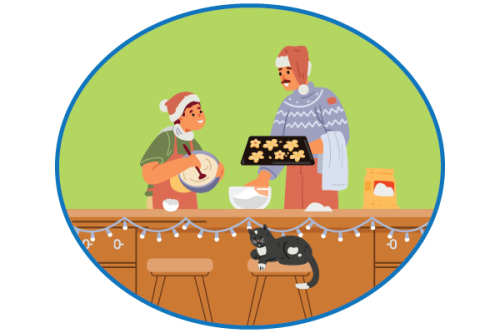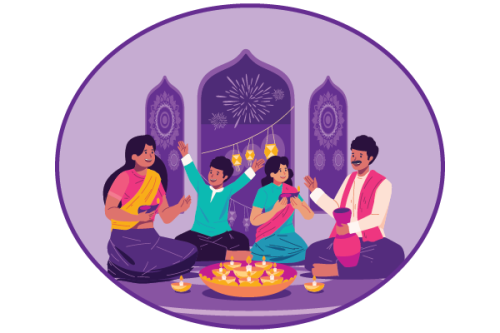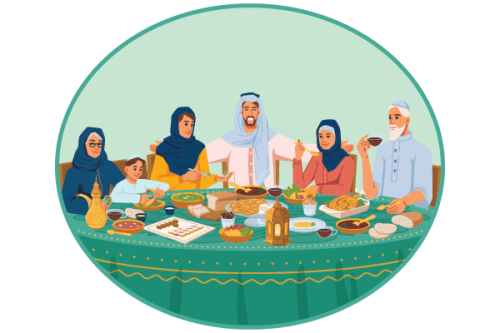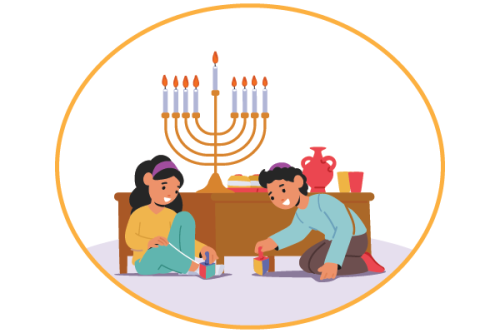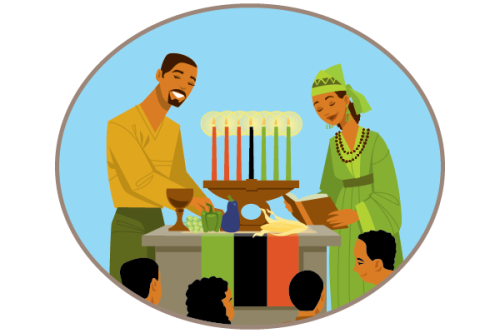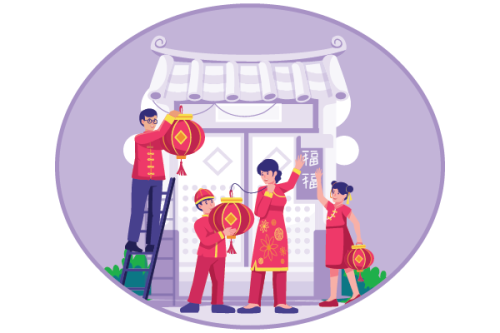Cultural Connections: Being Intentionally Inclusive During the Holiday Season
A chill in the air, twinkling lights on windows and roofs, recognizable songs on the radio repeating sentiments of family, gift-giving, and Santa Claus. The holiday season approaches, and the evidence is everywhere. While some individuals may find excitement and familiarity in the extravagant testimony to a joyous season, some experience this time differently, facing stress and challenges often overlooked by mainstream holiday traditions. Various factors like culture, LGBTQIA+ identity, socioeconomic status, and addiction, to name a few, can shape the holiday experience. It is crucial to be mindful of the diverse ways the holiday season is observed as we strive to build a more inclusive community.
Cultural Differences in Holiday Celebrations
While scrolling through holiday movies looking for something festive to watch, you may find that celebrations are often depicted in relatively uniform and repetitive ways. It is less common to find portrayals of practices that honor different cultures. Those who celebrate in unique ways or do not celebrate at all may experience feelings of isolation or exclusion. Learning more about other traditions and how diverse communities spend this time can help create connections with those who may feel marginalized during the holidays.
Here is a brief introduction to some of the holidays that may be celebrated throughout the season:

The LGBTQIA+ Community Experience During the Holidays
Regardless of how one celebrates, there is a societal expectation that it will be done surrounded by family. For many LGBTQIA+ community members, particularly those estranged from their biological families or rejected due to their identity, this time of year may be especially painful. In fact, more and more people within the LGBTQIA+ community choose to spend the holidays with their “chosen family,” where they can be their authentic selves – free from the judgment they may experience from biological relatives. Even still, feelings of guilt can surface. Empowerment, compassion, and affirming care can be a powerful way to offer support to those who, for various reasons, are unable to celebrate with their biological families.
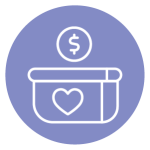
Socioeconomic Stress in a Consumer-Driven Season
Multiple gatherings, office parties, charitable donations, gift exchanges, travel, children’s required school activities, and expectations for extravagant meals and decorations; the demands of the holiday season can be mentally, physically, and certainly financially costly. For low-income families and individuals already struggling to cover basic needs, the added pressures have impacting consequences. Feelings of shame and guilt can surface for those who cannot afford gifts, travel, decorations, or large holiday meals. We can acknowledge and alleviate financial stress by redefining holiday expectations and focusing on alternative and intentional ways to celebrate.

Substance Use Recovery and Holiday Triggers
For individuals in recovery, the holidays can be challenging due to stress, emotional triggers, and exposure to environments where alcohol or other substances may be more prevalent. Many families and cultures include alcohol use, substance use, and/or gambling as a key part of their holiday traditions. In fact, the average American’s alcohol consumption typically increases 27% more during the holiday season than the rest of the year. Meanwhile, the stress that comes from busy schedules, traveling, and shopping can open a door for relapse. Feelings of grief, nostalgia, and isolation can also surface intensely. Enforcing boundaries and a sturdy, supportive network can help people in recovery navigate a complex season of celebration.
References
Begom, A. (2024). What is Eid al-Fitr and how is it celebrated? BBC Good Food. https://www.bbcgoodfood.com/howto/guide/what-is-eid-al-fitr-and-how-is-it-celebrated
Bharath, D. (2023, November 10). What is Diwali, and how is it celebrated in India and the diaspora? PBS News. https://www.pbs.org/newshour/world/what-is-diwali-and-how-is-it-celebrated-in-india-and-the-diaspora
Blankenship, L. (2021, November 29). Being LGBTQ+ During the Holiday Season. Clarity Child Guidance Center. https://www.claritycgc.org/being-lgbtq-during-the-holiday-season/
Dell’Orto, G. (2023, November 30). When is Hanukkah, and how is it celebrated around the world? PBS News. https://www.pbs.org/newshour/nation/when-is-hanukkah-and-how-is-it-celebrated-around-the-world
Geographic, N. (2024, January 29). Lunar New Year. National Geographic Society. https://education.nationalgeographic.org/resource/lunar-new-year/
Hampton, D. (2022, December 19). Why Does Drug And Alcohol Use Spike During the Holidays? Addiction Center. https://www.addictioncenter.com/community/drug-alcohol-use-spike-holidays/
History of Christmas. (2022, December 21). HISTORY; A&E Television Networks. https://www.history.com/topics/christmas/history-of-christmas
Kwanzaa. (n.d.). National Museum of African American History and Culture. Retrieved December 6, 2024, from https://nmaahc.si.edu/explore/initiatives/kwanzaa
Nicklay, C. (2023, December 7). Holidays in many cultures. Winona Health. https://www.winonahealth.org/2023/12/07/holidays-in-many-cultures/
Scalf, S. (2021). The Importance of LGBTQ Allyship During the Holidays. Baker Donelson. https://www.bakerdonelson.com/the-importance-of-lgbtq-allyship-during-the-holidays
The Hidden Burden of Holiday Stress for Low-Income Households | United Way of York County. (2023). United Way. https://www.unitedway-york.org/news/hidden-burden-holiday-stress-low-income-households
Blog Post Tags:
Related Blog Posts
Related Learning Labs
Related Resources
.
- Buscar Tratamiento de Calidad para Trastornos de uso de Sustancia (Finding Quality Treatment for Substance Use Disorders Spanish Version)
- Finding Quality Treatment for Substance Use Disorders
- Focus On Prevention: Strategies and Programs to Prevent Substance Use
- Monthly Variation in Substance Use Initiation Among Full-Time College Students
- The National Survey on Drug Use and Health (NSDUH) Report: Monthly Variation in Substance Use Initiation Among Adolescents
